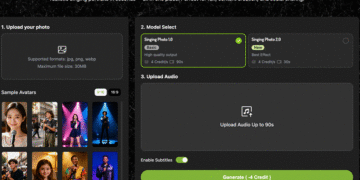In a world where the traditional nine-to-five model is being redefined and employee expectations are shifting rapidly, understanding what truly motivates today’s workforce is no longer optional — it’s essential. While financial remuneration remains important, it is far from the only factor driving employee engagement, productivity, and loyalty.
As organisations face mounting pressure to attract and retain top talent, especially in competitive markets, they must look beyond the payslip and explore what genuinely energises and inspires people at work.
The Rise of Intrinsic Motivation
One of the most significant shifts in recent years is the increasing emphasis on intrinsic motivation — the internal drive to perform well because the work itself is fulfilling. This includes factors such as purpose, mastery, and autonomy. People want to feel that their work has meaning, that they are developing professionally, and that they have the freedom to make decisions.
Research from Gallup has consistently shown that employees who feel connected to a larger purpose are more engaged, loyal, and productive. This is particularly relevant to Millennials and Generation Z, who make up a growing share of the workforce and tend to prioritise values over income.
Recognition and Appreciation Matter More Than Ever
Employee recognition is no longer a nice-to-have — it’s a strategic necessity. A study by Deloitte found that organisations with effective recognition programmes have 31% lower voluntary turnover rates. Employees want to know that their efforts are seen and valued, not just by management, but by peers as well.
Recognition doesn’t need to be costly or complex. From a simple “thank you” to formal reward systems, what matters most is authenticity and consistency. Recognising effort and achievement not only boosts morale but also reinforces behaviours that drive organisational success.
Flexibility as a Non-Negotiable
Post-pandemic, flexible working arrangements have gone from perk to priority. Employees expect the option to work remotely or in hybrid setups that allow better work-life balance. Flexibility also extends to working hours, allowing staff to align their schedules with personal commitments or peak productivity periods.
Employers that provide genuine flexibility signal trust and respect — qualities that significantly impact employee satisfaction and retention. It’s not just about where people work; it’s about how their lives are supported outside of the workplace.
Career Development and Continuous Learning
Modern employees are deeply motivated by career progression and opportunities to upskill. Offering ongoing training, mentorship programmes, and clear career pathways can dramatically enhance employee engagement. Organisations that invest in professional development are not only building future leaders but also creating a culture of growth and innovation.
Moreover, with the rapid pace of technological change, continuous learning has become a business imperative. When staff see that their employer is invested in their future, they are more likely to stay and perform at a higher level.
Workplace Culture and Belonging
Culture is no longer confined to break-room posters and corporate mission statements. Today’s employees seek workplaces where they feel a strong sense of belonging, inclusion, and psychological safety. This includes fair treatment, open communication, and shared values.
A positive workplace culture fosters collaboration, encourages innovation, and drives employee satisfaction. It creates an environment where individuals can bring their authentic selves to work, which is increasingly viewed as a catalyst for both personal and organisational success.
Wellbeing: More Than a Buzzword
Employee well-being encompasses mental, physical, emotional, and even financial health. Burnout and stress have reached unprecedented levels, prompting forward-thinking companies to offer comprehensive wellbeing programmes — from mental health support to wellness stipends and flexible leave policies.
Investing in wellbeing is not just ethical; it’s smart business. Healthy employees are more engaged, more productive, and less likely to take time off or leave the organisation. As awareness grows, well-being is evolving into a key pillar of the employee value proposition.
The Role of Reward and Recognition Platforms
To operationalise many of the motivational factors above, businesses are increasingly turning to digital solutions. A sophisticated rewards and recognition platform can streamline and enhance the way employees are recognised, rewarded, and engaged — helping employers align appreciation with business goals and cultural values.
One such platform provider is https://www.power2motivate.com.au/, which offers large organisations a streamlined, scalable way to implement rewards and recognition programmes that align with company goals and values. These tools not only improve employee morale but also provide measurable outcomes that support broader HR and business objectives.
A Multidimensional Approach
Motivating today’s workforce requires a multidimensional approach. While pay will always be a factor, it is no longer the sole — or even primary — driver of employee engagement. Modern workers are seeking purpose, recognition, flexibility, development, and a culture that values their well-being and contributions.
Forward-looking businesses that embrace these motivations will not only attract and retain top talent but also unlock higher performance, deeper loyalty, and a stronger organisational culture. Now more than ever, investing in what truly motivates employees is the key to sustainable success.











































































